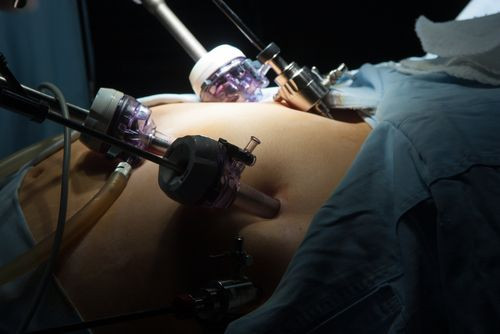Weight Loss Surgery Will Reduce Your Appetite And Make (Some) Food Taste Strange, Unappealing

Surgeries designed to shrink obese patients’ stomachs and shorten their intestines not only lead to dietary changes in terms of how much they are able to eat. They also lead to physiological and perceptual changes that reduce patients’ appetite and, in many cases, impair their senses of taste and smell.
A new study published in the journal Obesity Surgery finds that patients who undergo Roux-en-Y gastric bypass surgery (named for the surgeon who first described it and the shape the intestines take afterward) often report a diminished appetite when it comes to certain foods. Along with other sensory changes, the immediate effects of gastric bypass may not be the only effects, the research team claims, as prolonged hunger suppression could lead to further weight loss over time.
Researchers from Leicester Royal Infirmary in the UK collected data on 103 patients who recently underwent the process of having their stomach volume reduced and their small bowels rerouted. Nearly all patients (97 percent) reported a change in appetite, with 73 percent reporting a change in their sense of taste, and 42 percent in their sense of smell. Some 73 percent also reported an aversion to specific foods, with meat products most commonly cited, at 33 percent.
“This study indicates that subjective changes in appetite, taste and smell are very common after Roux-en-Y gastric bypass,” noted Lisa Graham, lead author of a study, in a statement.
Why the changes occur could be a mix of factors, according to Graham. When the body undergoes a massive change like bariatric surgery, the body’s balance of gut hormones and its central nervous system both must compensate for the new internal architecture. Ghrelin, the hunger hormone, for instance, is produced in the stomach and the pancreas. It could be the case that changing the hormone’s ecosystem throws off the person’s overall appetite. To what degree and how often, however, remains to be seen.
Prior research has found that such dramatic changes may lead to a curious set of challenges for patients who undergo weight loss surgery. A 2013 study of lap-band (laparoscopic banding) patients found that nutritional counseling was necessary in many cases, due to the fact that patients’ stomachs are now smaller, and they want to consume less food, but the food they are consuming is still unhealthy.
The point of any weight loss surgery is to extend a person’s life and equip them with healthy life choices. “They may need not only supplementation, but also counseling and constant evaluation,” senior author of the study, Dr. Abhimanyu Garg, said in a statement. And judging by the current obesity trends — more than a third of U.S. adults are obese (34.9 percent) — and the fact bariatric procedures have risen in prevalence from 103,200 in 2003 to more than 220,000 in 2009, when they peaked, and now to 160,000 annually, these concerns can only grow.
Garg advises all patients post-surgery to restrict their diets according to certain guidelines. In truth, they mirror a well-balanced diet that just about everyone could stand to adopt. Garg urges people to consume food rich in protein, vitamins, and minerals to keep nutrient levels high, and to consume more fish for fatty acids, and fruits and vegetables for added nutrients. Processed foods, which are high in sodium and sugar contents, should be kept to a minimum.
Source: Graham L, Murty G, Bowrey D. Taste, Smell and Appetite Change After Roux-en-Y Gastric Bypass Surgery. Obesity Surgery. 2014.



























